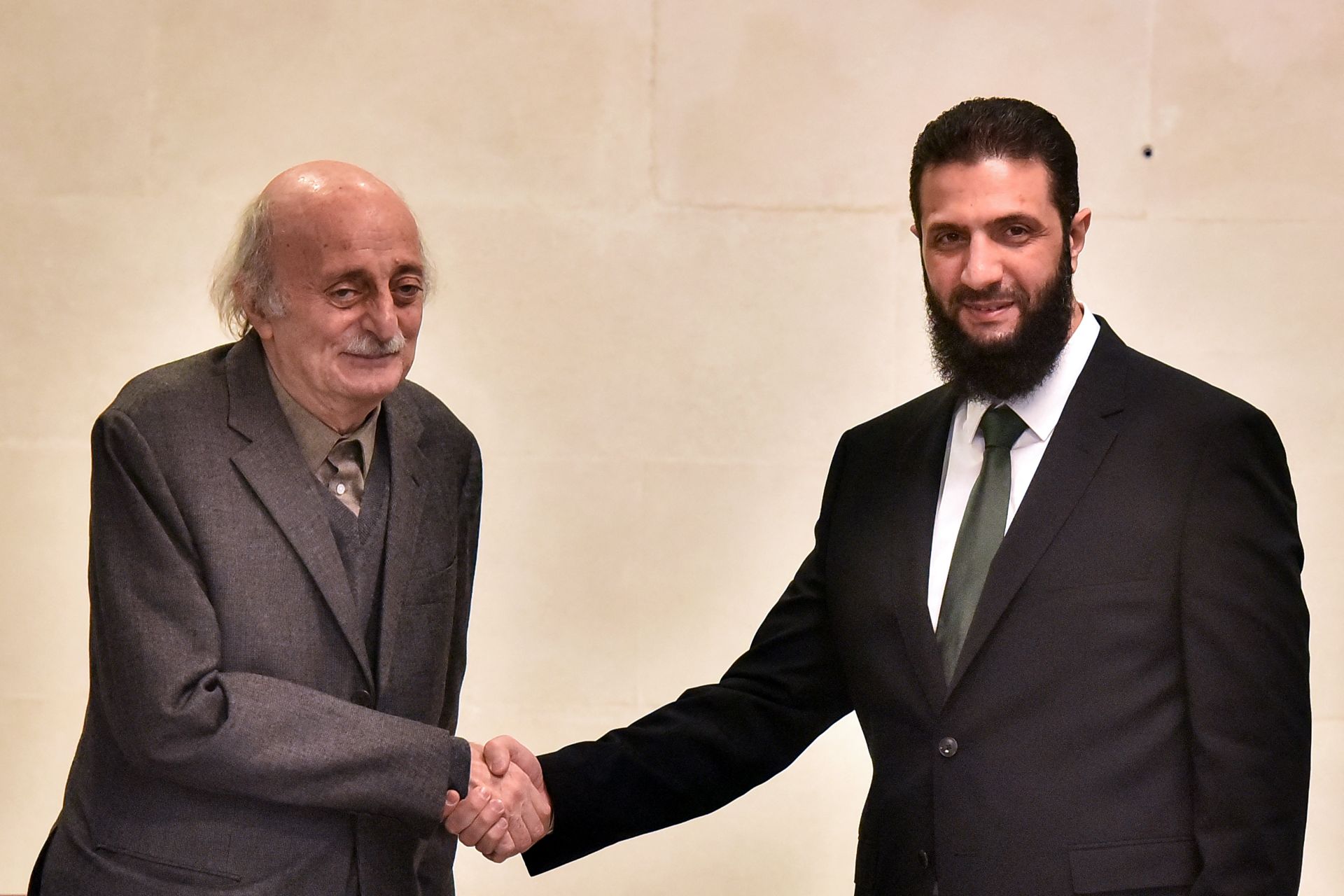
Following Sunday’s visit to Syria by the former head of the Progressive Socialist Party (PSP), Walid Joumblatt, a 13-point memorandum was submitted to Syria’s new leader, Ahmad al-Sharaa. The memorandum focuses on establishing “healthy and stable relations” between Beirut and Damascus. It also provides a potential roadmap for addressing several key issues, including the fate of detainees and missing persons in Syrian prisons, border demarcation and the reconsideration of the Treaty of Brotherhood, Cooperation and Coordination, signed on May 22, 1991, by former Lebanese President Elias Hraoui and Syrian President Hafez al-Assad.
According to the online news site al-Anbaa, the memorandum calls for a “revision of all previous agreements between the two countries” and could lead to the abolition of the Syrian-Lebanese High Council, which was established to implement the goals of the aforementioned treaty. The memorandum reportedly includes provisions for better border control, the delimitation of maritime and land borders and the closure of illegal crossings to halt smuggling.
Additionally, the memorandum advocates for fair trials for individuals implicated in crimes. It also calls for the disclosure of the identities of those involved in assassinations in Lebanon who have not been included in the Special Tribunal for Lebanon.
Regarding the Shebaa Farms, Joumblatt emphasized that they are “Syrian until proven otherwise,” in line with “the logic of international law” and UN Security Council Resolution 242. In this context, the Druze leader stressed that “until Lebanon receives documents from the Syrian authorities proving the Lebanese ‘identity’ of the Shebaa Farms, and until the borders between the two countries are demarcated, we have no choice but to consider these lands as Syrian.”
Some observers suggest that Joumblatt’s visit—the first by a Lebanese leader to Damascus after the fall of former President Bashar al-Assad’s regime—presents an opportunity to discuss the future direction of Lebanese-Syrian relations, particularly in terms of the fundamental principles that should govern their ties moving forward.



Comments